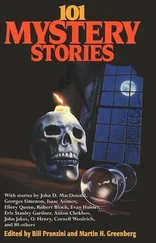1909
It’s as if I saw him before me, the Prince of Homburg. He’s had period costume slapped on him and now appears to be piquing himself on the colors of this garb, that’s how vain a fellow he is. He’s also quite a talent, incidentally: he speaks well, and this gives him one more thing to pique himself on. He has tall, gleamingly polished boots on his firmly planted legs, and, good heavens, chivalric gloves on his hands, which not everyone has; a mere bourgeois, for example, would not be wearing any such thing. Upon his head sits a wig, and his mustache is fabulously curly — this alone being enough to ensure artistic success. All he has to do now is stamp his soldierly leg on the ground in vexation to sweep away all malevolent critiques; he does so, and from this moment on this Monsieur Prince of Homburg is a divinely gifted artist. Moreover, he’s learned his lines by heart, which is utterly superfluous, and has made a note of the passages where his entire princely Homburgly nature is to shine through — an absolute lack of artistic unselfconsciousness. He doesn’t have to be able to do anything, in fact it’s even good if he can’t, as a true actor opposes learning — his abilities are inborn. After all, that’s what laudably separates this lofty profession from all other earthly professions: one simply stomps to the fore in one’s boots, rattles one’s dagger about, gesticulates, and reaps applause. It isn’t an ordinary person who can succeed in saying:
Balanced upon your sphere, oh most vast Fortune—
Such words cannot be spoken by a doctor, mechanic, journalist, bookbinder, or mountain climber, nor would such a person, as God is my witness, have any reason to utter them. The eyes of the Prince of Homburg roll frightfully within their sockets, he speaks these lines more with his rolling eyes than with his lips. He speaks these lines badly, by the way, which demonstrates that he is a good person, that he has a soul, a wife and child, that he has character, and it demonstrates as well — yes, this has only now struck me — that he has thought very, very deeply about his role. This Prince of Homburg displays an enchanting Arcadianism when the time comes for him to say:
Pah! — As a rogue would write it, not a prince.—
I’ll find some other turn of phrase.
He might possibly bellow these words. And now he expects applause, but he feels himself to be aristocratically exalted above the burgher whose applause he desires. Well, after all, he is an aristocrat, a landowner with property along the Rhine:
And there I’ll work at building and tearing down.
My goodness, he really does lose himself in the part he is playing. Talent is something possessed by the cobbler who measured him for those high-shafted boots, not by him, or in other words: Why, of course he has talent, but what does any of this mean to a burgher of simple birth?
1907
We are living now in a peculiar time, though all times may perhaps have had their own timely peculiarities. Indeed, this time of ours strikes me as highly, highly peculiar, especially when — as I am doing just now — I place one finger alongside my nose so as to reflect upon the actual nature of this life that we are now forcefully thrusting and squeezing onto the stage. We give the stage life to eat, and it appears to be well fed. Even the most obscure, sequestered dramatist presents the theater with his scraps of obscure, sequestered life. If things continue at such a clip, life will soon be lying flat on its back like a consumption-wracked crone, sucked and pumped dry to the ribs, while the theater will be as plump, portly, and stuffed full as, say, an engineer who’s struck gold with his patented enterprises and is now in a position to allow himself all the pleasures the world affords.
The stage needs life! True enough, but plague and pox confound it, where is all this good, wholesome, veritable life supposed to come from? From life, no? But then is life really so inexhaustible? In my view it is inexhaustible only insofar as we let it keep on following its natural course — tranquil, fluid, and broad — like an untamed, beautiful river. But it may soon appear incontrovertible that we erudite numskulls are merely exploiting and pummeling life, no longer its natural children. It’s as if life were a large, dusty carpet that now, in this age of ours, is to be hung out and given a good whacking. Even dentists who’ve gone to see Lulu have begun to study the features and muscles of life as though it were necessary to cut open an old cadaver and hurl pieces of it onto the stage.
Here’s the thing: the more vivid and natural things look at the theater, the more anxious, guarded, vexed, and upholstered things will appear in everyday life. When the stage bangs out its truths, it exerts an intimidating influence; when, however, it spins out golden, idealized falsehoods in an oversize, unnaturally beautiful form — as it used to do at least a little in former eras — the effect of this is provocative and heartening, it fosters the beautiful, crass vulgarities of life. Then we can say we’ve been to the theater and luxuriated in a foreign, noble, beautiful, gentle world. Watch out with those unbridled nature plays of yours, lest life trickle away unawares. I’m all for a theater of lies, Lord help me.
1907
Meier spelled with an “ei”? No? Well, in that case I should like to permit myself to humbly draw your attention to this man. He is currently appearing at Café Bümplitz, which is situated on some street I can no longer recall. There, amid bad and unseemly tobacco fumes, rude remarks, and the clatter of tankard lids, he performs night after night and will go on doing so until one day perhaps some clever theater management will scoop him up, which I don’t doubt for a moment will shortly occur. This man, this Meier, this fellow is a genius. It’s not just that he can make you laugh harder than twenty men can laugh in all their added-together lives, make you laugh till you split your sides or, what am I saying, till you roll in the aisles, or wait a bit, till you die laughing, oh what a simpleton I am if I cannot pound a better comparison from the quarry of my authorial cranium, it’s not just that but also that, how confusing this is, yes, quite right, but also that even the quite natural inducement of a tragic frisson is by no means beyond his reach, in fact he finds it all too easy. So have I actually finished my sentence now or not? If not, what a lovely pretext for going on.
Meier also performs music-hall ditties with a fabulous don’t-mind-if-I-do-ishness, speaking a language that is surely the most unimpeachable there is, for he lets it drop, nugget by nugget as it were, such that a person listening to him might take a notion to kneel at the man’s feet to gather up the morsels. The tone of this voice — I’ve studied it in considerable depth — reproduces in sound the approximate impression made on the eye by the progress of a snail, so resplendently languorous, so lazy, so brown, so very reptant, so slimy, so gluey, and so terribly if-not-today-why-not-tomorrow. A pleasure pure and simple. I can recommend it in good conscience.
This Meier, one should know if one does not know it already, plays a theater usher, the role he most shines in, a figure with horrifying trousers, a tall hat, a stuck-on nose, a box beneath his arm, holes at his elbows, cigar in mouth, and not just a lip on him but a proper maw, and a bundle of bad jokes on his dunderhead tongue. This figure is beyond delightful. I for my part have seen him, just a sec, I think a good fifty times now and still have not tired of the act. Of course not! One never tires of gazing upon excellence.
Читать дальше












